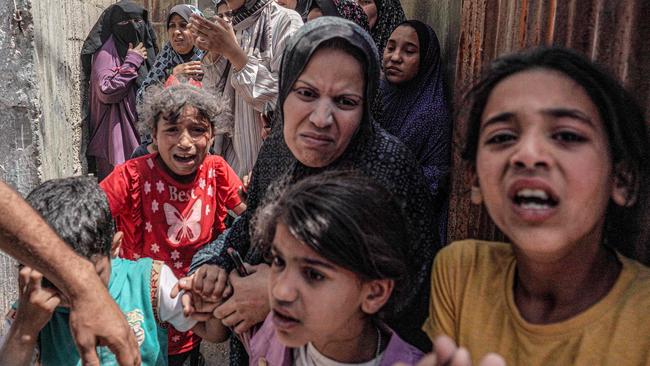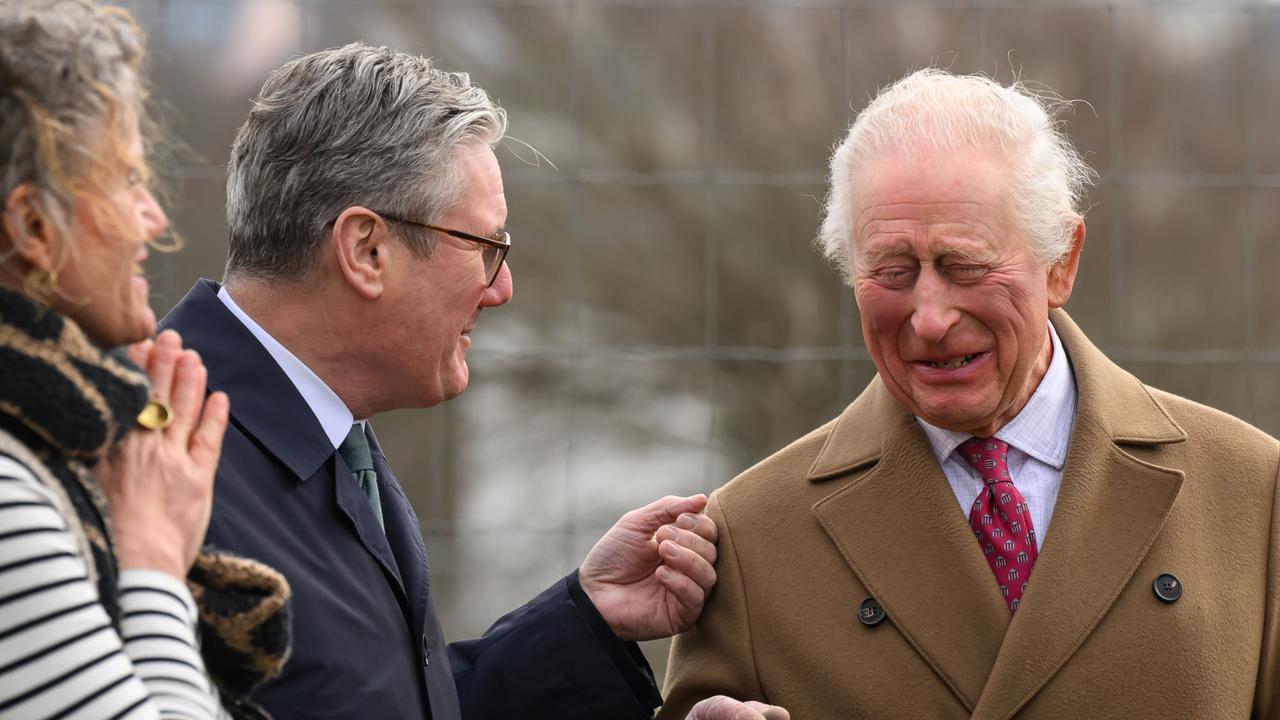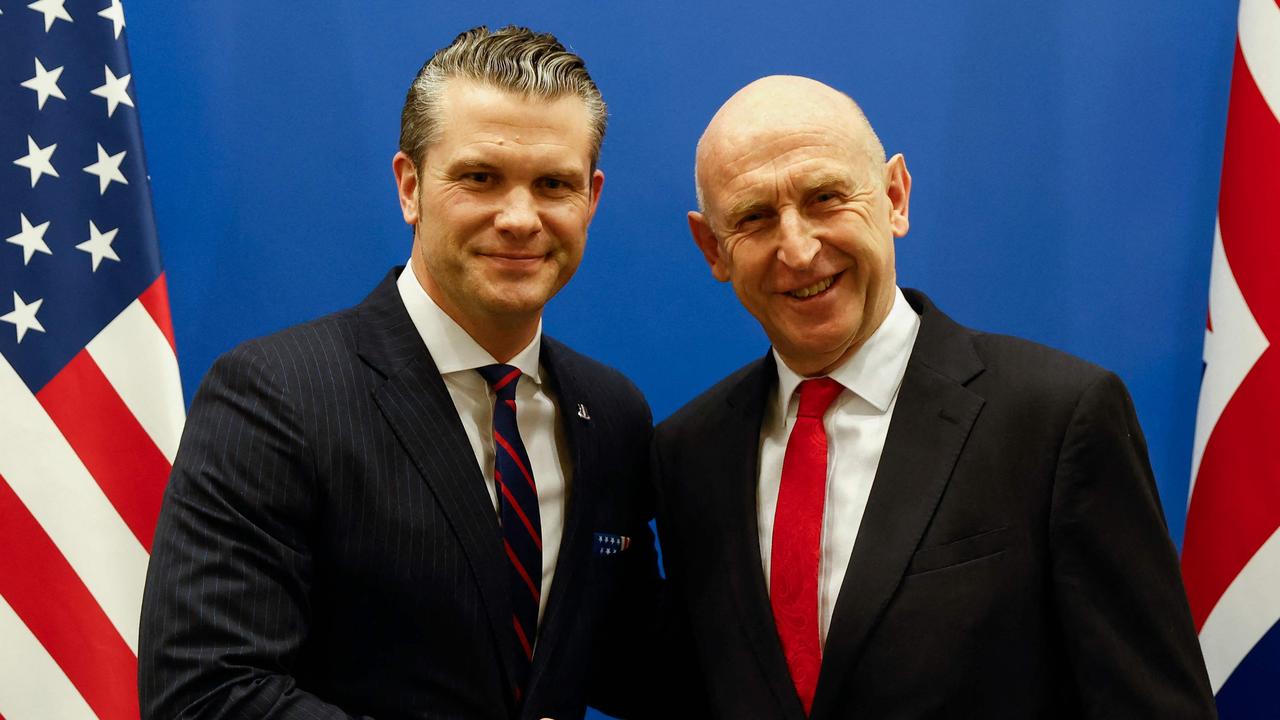Hamas the stumbling block over ‘generous’ Gaza ceasefire deal
Hamas is standing in the way of a ‘very generous’ ceasefire agreement with Israel in which some hostages could be released in return for a 40-day truce.

Hamas is standing in the way of a “very generous” ceasefire agreement with Israel in which some of the hostages it is holding could be released in return for a 40-day truce in the Gaza Strip.
Speaking at the World Economic Forum in Saudi Arabia, British Foreign Secretary David Cameron said the proposal could also include the release of thousands of Palestinian prisoners.
“I hope Hamas accepts the proposal in front of them,” he said, adding that Israel’s war with the group will not end “until all the hostages are released”.
Mr Cameron has joined foreign ministers from the US, Europe and the Middle East in Riyadh to push for a last-ditch ceasefire in Gaza before any Israeli military operation in Rafah takes place.
Israel’s government has previously threatened to assault the southern city near the border with Egypt, which it sees as Hamas’s last stronghold in Gaza. It is crowded with more than a million Palestinians who have fled the fighting.
A Hamas delegation led by the head of the group’s negotiating team, Khalil al-Hayya, has been sent to Cairo to join mediators from Qatar and Egypt, where it is expected to respond to Israel’s proposal for a ceasefire of up to six weeks and the release of Palestinian prisoners in exchange for 40 Israeli hostages who remain in Gaza. More than 240 Israelis, including several children, were kidnapped by Hamas militants during the attacks of October 7 and carried back to Gaza to be held as hostages.
According to The New York Times, citing Israeli officials, Israel may be willing to accept the release of 33 hostages – fewer than the 40 proposed – for the next phase of exchanges.
Antony Blinken, the US Secretary of State, also noted that “Hamas has before it a proposal that is extraordinarily generous on the part of Israel. The only thing standing between the people of Gaza and a ceasefire is Hamas. I hope they make the right choice.”
A Hamas official was reported to have said that there were “no major issues … regarding the contents” of Israel’s proposal. However, Izzat al-Risheq, a Hamas official, denied this and said that “the proposal is still in the stages of being studied”.
Hamas has previously insisted that the only ceasefire they will accept is a permanent end to the war and the withdrawal of Israeli forces from the Gaza Strip, but the threat of an imminent attack on Rafah has increased pressure on them to accept a truce.
Sameh Shoukry, Egypt’s Foreign Minister, said he was “hopeful” of progress because the latest proposal “has taken into account the positions of both sides and has tried to extract moderation”.
Those assembled in Riyadh also discussed the future of Gaza after the war, which has left a security vacuum and much of the territory’s buildings damaged or destroyed.
Mr Cameron reiterated Britain’s position that the goal must be a state for the Palestinian people that “gives them the dignity of statehood” but also guarantees Israeli security. But he added that Hamas must leave Gaza for a two-state solution to become a reality.
“Hamas are not currently in favour of a two-state solution. They are in favour of a no-Israel solution,” he said.
Arab countries who will be asked to fund reconstruction in Gaza and possibly commit troops for a peacekeeping mission there have made their agreement conditional on a viable plan that leads to a Palestinian state, which is something that the Israeli government has so far rejected. Mr Blinken, who was to travel to Israel on Tuesday, urged the Netanyahu government to do more to increase the flow of aid into the Gaza Strip.
He said that the US had not yet seen “a plan that gives us confidence” for a military operation in Rafah that would protect civilians.
There had been “measurable progress in the past few weeks, including the opening of new crossings and increased volume of aid delivery to Gaza and within Gaza, and the building of the US maritime corridor – but it is not enough,” he said. “We still need to get more aid in and around Gaza.”
He also called for a strong regional front against Iran after an unprecedented direct exchange of fire between Israel and the Islamic Republic. “This attack highlights the acute and growing threat from Iran but also the imperative that we work together on integrated defence,” Mr Blinken said.
Israel continues to launch airstrikes on targets in Gaza City and Rafah most nights, with 27 Palestinians killed overnight on Sunday, according to the Hamas-run health ministry.
Josep Borrell, the EU’s foreign policy chief, told the meeting that several European countries would recognise a Palestinian state by the end of May, a symbolic move that is supported by Spain, Ireland, Belgium, Slovenia and some other member states.
On Sunday Mahmoud Abbas, president of the Palestinian Authority, called on the US to intervene to stop an Israeli ground attack on Rafah, which he said would come in the “next few days”.
American officials said that Israel had provided assurances that it would not enter the city until a plan to evacuate civilians had been discussed.
President Joe Biden raised the Rafah issue when he spoke to Binyamin Netanyahu on Sunday night and “reiterated his clear position”, the White House said.
The Times


